Most Famous Stock Traders: Mindset And Cases
Most famous stock traders are:
George Soros — made over a billion dollars in a day on the sharp fall of the British pound against the German mark
Michael Burry — was one of the first to predict the collapse of the real estate and mortgage markets
Jim Rogers — Co-founder of Quantum Fund and Soros Fund Managementwith George Soros
John Paulson — foresaw the mortgage crisis and made $3.7 billionfrom it
Paul Tudor Jones — gained notoriety after predicting Black Monday in 1987
Jesse Livermore — managed to make and then lose millions of dollars several times over
Steve Cohen — has become known as having an uncanny ability to make money under any market circumstance
Nick Leeson — bankrupted Britain's oldest bank, Barings PLC
James Simons — well known for his work in hedge funds and his contributions to quantitative analysis
Every millionaire who has made their fortune in securities trading is a beginner in the past who slowly but surely made their way to their goals. None of them was born a trader with rich experience and huge starting capital. They all learned, made mistakes, reached heights, lost everything and started again. To achieve success, they had to go through a hard path filled with ups and downs. Today their names are known to everyone who has decided to connect his or her life with trading on the financial markets.
In this article, TU experts will tell you about the most revered stock traders in world history so that you not only get motivated, but also realize that the path of a trader is not always a straight line.
What are the different stock trading approaches?
There are many different approaches including day trading, news trading, position trading, scalping, swing trading and more.
Is there a benefit to knowing the lives of famous stock traders?
Of course, by studying the path of famous traders, you get not only motivation and inspiration, but also learn from other people's mistakes, familiarize yourself with their approaches to trading, get an idea of market dynamics, trends and patterns, which will eventually allow you to improve your own trading skills.
Do famous stock traders share their knowledge of investment with others?
Yes, many famous stock traders are willing to share their knowledge with others. They write books detailing their practical experience, speak at conferences, create educational resources, run social networks where they share their ideas and analysis, and even practice mentoring.
How to become a successful stock trader?
Education is the first step to successful trading. Then you should define your trading style, develop clear rules for entering and exiting trades based on technical and fundamental analysis, master effective risk management, develop psychological resilience and always analyze your trades to avoid the same mistakes in the future.
Most successful stock traders and their stories
George Soros
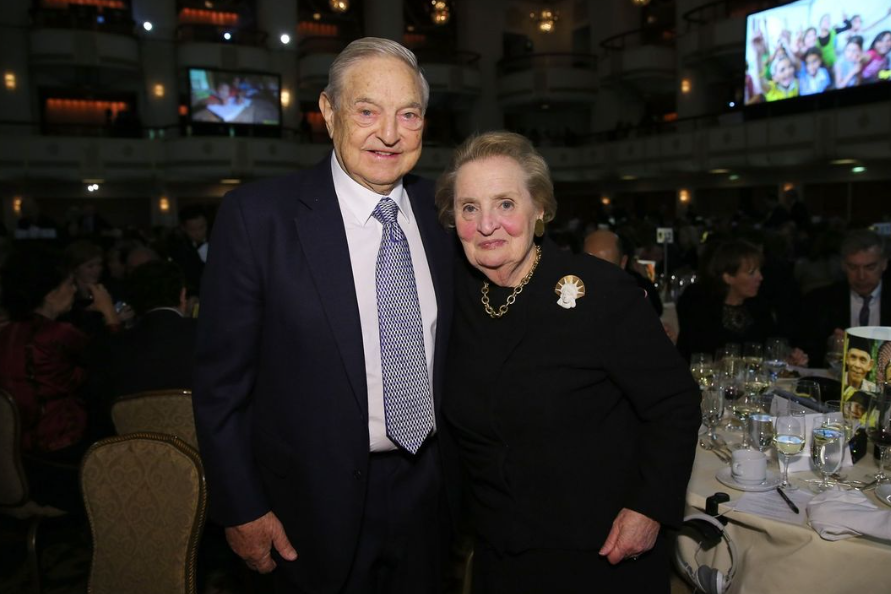
George Soros
George Soros is an American billionaire, investor and philanthropist who is one of the most famous speculators in the history of the stock market. The future legend was born in Budapest on August 12, 1930 in a Jewish family and his real name was György Schwartz. In 1947 Soros moved to Great Britain, where he entered the London School of Economics and Political Science, successfully graduating in three years.
Due to the lack of money during this period of time, young George grabbed any job, having managed to be a lifeguard in a swimming pool, a doorman at a train station, a worker at a haberdashery factory, etc., while sending his resume to all investment banks in London, where his candidacy was rejected due to both lack of experience and lack of connections. However, luck smiled on Soros and he got his job in the financial sector at Singer & Friedlander Bank.
In 1956 Soros moved to New York, where he began working on Wall Street. By 1967 Soros was already head of research at Arnhold and S. Bleichroeder, and in 1969 he became manager of the Double Eagle fund. In 1973, together with Jim Rogers, Soros founded a fund called Quantum. During their work together from 1970 to 1980, Soros and Rogers never suffered losses, and Soros' personal fortune at the end of 1980 was estimated at 100 million dollars.
But real fame came to Soros on September 16, 1992 - a day known in history as "Black Wednesday". It is believed that on the sharp fall of the British pound against the German mark, Soros (or rather, the team of traders under his leadership) earned more than a billion dollars for the day, which earned him the nickname "the man who ruined the Bank of England".
According to Forbes, as of May 2023, George Soros' net worth was $8.6 billion dollars.
And here are a few basic principles that guided the great investor on his path to success:
Even recognized experts make mistakes on a regular basis.
When determining the acceptable level of risk for yourself, focus on the instinct of self-preservation.
Many factors influence stock prices, but in the end, any movement is simply a simple up-and-down and it's important to remember that.
The first to recognize the underlying trend is the winner.
You need to recognize not only other people's mistakes, but also your own.
Michael Burry

Michael Burry
Michael Burry is an American doctor, financier, founder and hedge fund manager of Scion Capital.
Michael was born in 1971 in San Jose, California. At the age of two, Michael developed cancer, as a result of which he lost his left eye and has been wearing a special prosthesis ever since. After high school, he studied economics at UCLA and later went on to attend Vanderbilt University School of Medicine in Tennessee. Upon returning to California, Michael Burry did his residency in the neurology department at Stanford Hospital and Clinics. In his spare time, Michael took an active interest in investing and even founded Techstocks, where he published his stock market analysis. He left his job at the hospital and founded the hedge fund Scion Capital in 2000.
Burry was one of the first investors in the world to predict the real estate and mortgage market collapse that led to the 2008 financial crisis. But for Michael, the terrible crisis turned out to be a resounding financial success. Burry managed to personally make $100 million dollars, while Scion Capital investors made more than $700 million dollars in profits. Ultimately, his hedge fund had a net return of 489.34% between November 1, 2000 and June 2008, after which he liquidated it. Now Michael does not attract outside investors, but invests only his own money.
In 2015, the movie "The Big Short" was filmed about these events, with actor Christian Bale playing the role of Michael Burry.
Here is Michael's advice to novice investors: "To trade successfully on the stock exchange, prepare yourself: analyze, think independently, study, learn, and you will understand what others cannot."
David Tepper
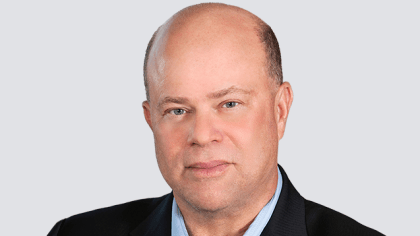
David Tepper
David Tepper is a famous billionaire who is considered to be one of the richest people in the United States. According to the latest data, his fortune is estimated at more than 11 billion dollars.
The future billionaire was born on September 11, 1957 in the state of Pennsylvania. Since early childhood, David was fond of math, but good performance in school he could not boast. To pay for tuition at the University of Pittsburgh and Mallon University, Tepper was forced to take several loans and get a job in the library. While still a student, he became interested in stock trading and proved himself to be a talented entrepreneur. After graduation, Tepper worked as an analyst and trader for several companies, including Goldman Sachs and Citadel LLC, founded by Ken Griffin. However, this was not enough for him, so in 1993 he founded his own company - Appaloosa Management LP.
David Tepper became famous in 2008 due to his successful investment strategy, when his hedge fund earned more than 7 billion dollars on the decline in stock prices of financial companies.
Jim Rogers
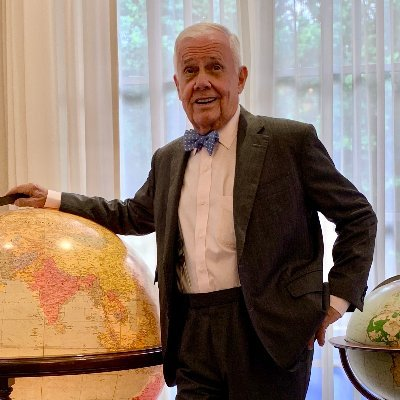
Jim Rogers
Jim Rogers is an American investor, financier, and author known for his investment strategies and his involvement in the creation of the Quantum Fund in the 1970s with George Soros.
Jim Rogers attended Oxford and Yale Universities, where he majored in politics, philosophy, and economics. Rogers began his career in the world of finance in the 60s. In 1964 he worked in the investment and banking firm Dominick & Dominick, and in the early 70's he gained experience in the firm Arnhold and S. Bleichroeder, where he met his future partner - George Soros. Together they founded Quantum Fund. However, despite the success of the hedge fund, in 1980 Jim Rogers decided to retire from business. In the summer of 1998, he created his own commodity index - “Rogers International Commodities Index”.
John Paulson
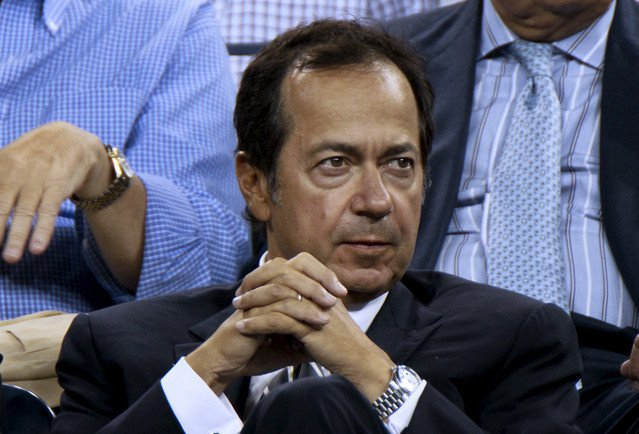
John Paulson
John Paulson is a trader and investment manager who rose to fame in the wake of the 2008 mortgage crisis.
Paulson made his first steps into the financial markets under the guidance of mentors from Bear Stearns, where he got after graduating from Harvard. And already in 1994 he opened his own investment fund, named Paulson & Co.
Later, Paulson & Co. managed to profit from the collapsing U.S. market. Anticipating the US mortgage crisis, Paulson invested in credit default swaps. Playing on the downside, he bet on the collapse of the real estate market and hit the jackpot, earning $3.7 billion and leaving George Soros with his Quantum fund ($2.9 billion) and James Simons with his Renaissance Technologies Corp. fund ($2.8 billion) far behind.
Paul Tudor Jones
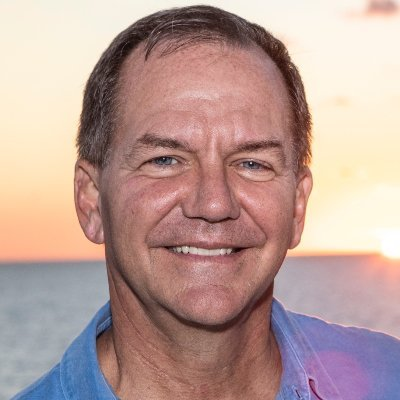
Paul Tudor Jones
Paul Tudor Jones is an American billionaire, philanthropist, conservationist and founder of the hedge fund Tudor Investment Corporation. Paul Jones received his college education at the University of Memphis, and began his investment career in 1976 as a commodities broker for E. F. Hutton & Co.
In 1980, Paul Jones founded Tudor Investment Corporation, which today is a leading figure in the stock market. As of 2022, the firm had over $12 billion dollars under management. The investor has a personal fortune of over $5 billion (as of 2019). His name became most widely known after predicting Black Monday in 1987, when the Dow Jones fell by more than 22%.
In addition, Jones is active in philanthropy and is the founder of the Robin Hood Foundation, which aims to overcome poverty in New York City.
Jesse Livermore
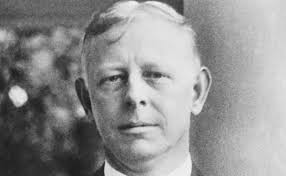
Jesse Livermore
Jesse Livermore is a famous trader of the 20th century who accurately predicted both the stock market crises of 1907 and 1929. Several times he earned and lost millions of dollars.
Livermore began his trading career at the age of 15, earning his first $1,000 by making deals with illegal bookmakers who accepted bets on the rise or fall in the price of goods or stocks.
During the stock market crash of 1907 Livermore earned 3 million dollars, and in 1929 he managed to get 100 million dollars. However, in 1934 Jesse lost everything and became bankrupt. In November 1940, being in deep depression, Livermore wrote a farewell note and committed suicide.
His basic rule of operation was: "Trade the trend - buy in a bull market and sell in a bear market".
Steve Cohen
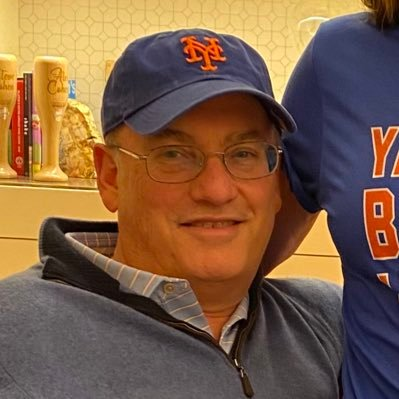
Steve Cohen
American investor and financier, founder and managing partner of Point72 Asset Management was born in 1956 in New York. Since childhood, Steve Cohen has had a great passion for poker. It was this game that later taught the young man to make risky decisions without overstepping the boundaries of reasonableness.
Cohen became interested in the stock market in his student years. Then he first invested 1000 dollars in the brokerage firm Gruntal, which brought him profit and faith in his own strength. And in 1978, Steve received his first job offer from Gruntal.
At the age of 27, Steve Cohen had 6 traders under his command, controlling a $75 million portfolio. But despite his career prospects, in 1992 Cohen quit Gruntal to start his own company, called SAC Capital Partners.
It took off in 1998, when hedge fund Long-Term Capital Management went bust and the market went down. Cohen correctly assessed the situation by taking the opposite position of Long-Term Capital, which earned investors a 49.92% annualized return. With this move, Cohen's fund kept 50% of the profits for itself, while other companies settled for 20%.
After SAC Capital Advisors ran into legal problems, Cohen founded a new company-Point72 Asset Management-in 2014. This financial institution manages the assets of Cohen and his family.
Nick Leeson
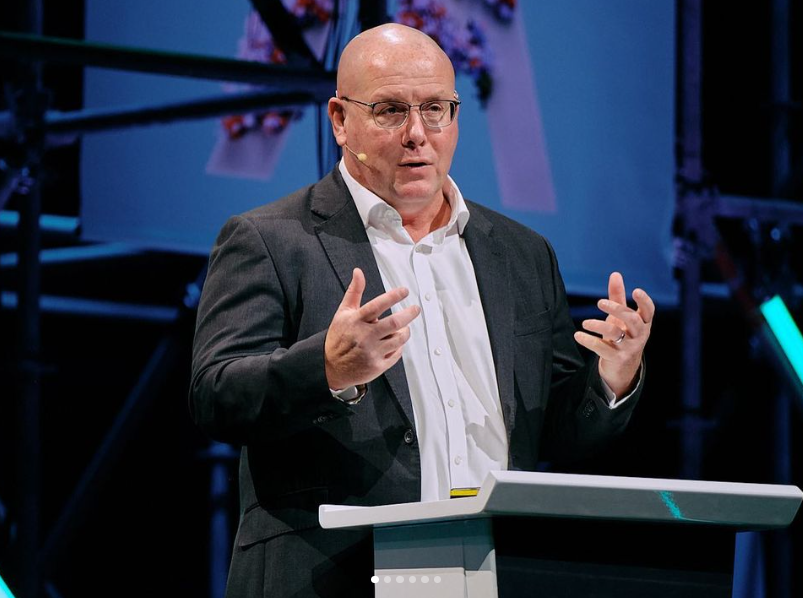
Nick Leeson
Nick Leeson is a trader who became a key figure in one of the most famous bankruptcies in the history of financial markets.
In 1989, Leeson joined the staff of the Singapore branch of Barings PLC, Britain's oldest bank. At the end of 1993, Nick Leeson brought Barings 8.83 million pounds sterling, and the newspapers began to write about his genius. It is worth noting that Nick was only 26 years old at the time. However, the rise was followed by a crushing fall.
His name made headlines around the world in 1995, when he drove Barings PLC into bankruptcy with his risky and unauthorized trades in Nikkei 225 index futures contracts. In an attempt to hide his losses, Leeson continued to make new trades, hoping for a market reversal, but to no avail. As a result, the bank's losses reached $1.3 billion, so Barings was sold to Dutch bank ING for the symbolic sum of £1.
Leeson did not want to serve his sentence in a Singapore prison, so he left a short note with the words "I apologize" and went to Britain. However, he was detained at the airport in Germany and extradited back to Singapore where he was charged. Nick was sentenced to six and a half years.
While incarcerated, he wrote a book called "The Grifter Trader", the money from the sale of which was used to pay off the bank's accounts payable.
James Simons
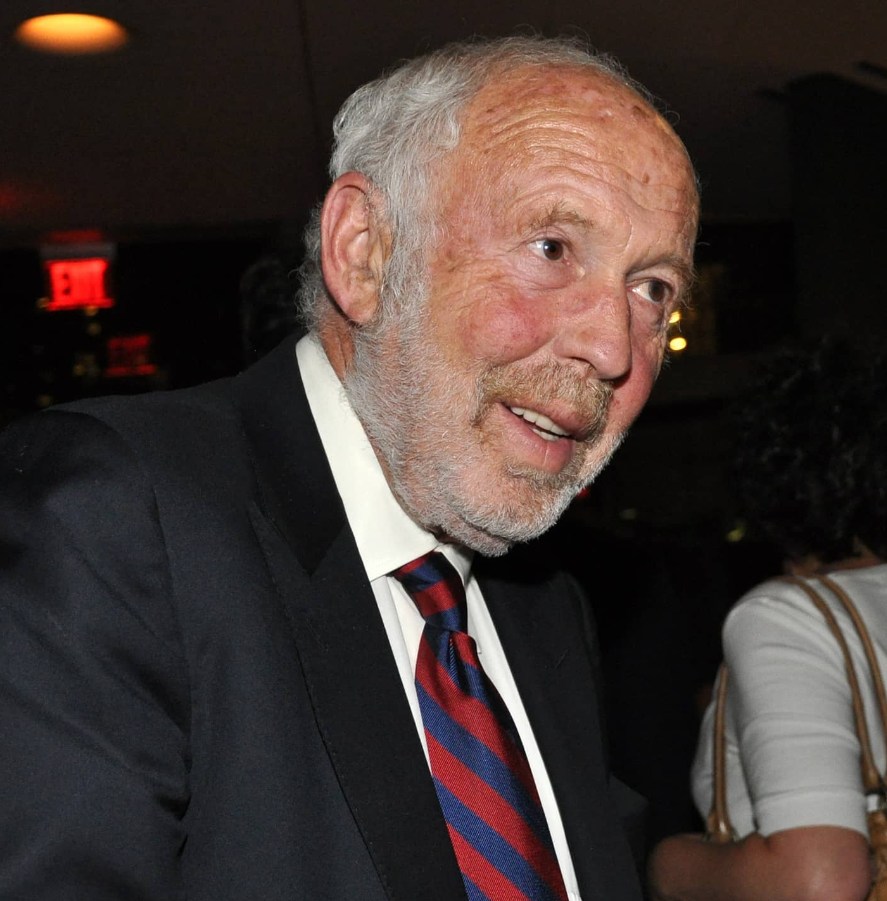
James Simons
James "Jim" Harris Simons is an American mathematician, investor and fund manager, renowned philanthropist and founder of the legendary hedge fund Renaissance Technologies.
He received education from both the Massachusetts Institute of Technology and the University of California. For a while he taught math at Harvard, and in 1968 he became head of the math department at Stony Brook University. But later, Simons became interested in investments and left his teaching career to start his own company.
In 1982, the hedge fund Renaissance Technologies Corporation was born, the main focus of which was investing in real estate and financial processes. The company quickly gained momentum and in 2006 its profits reached $1.7 billion.
Simons is also known for his contributions to the field of mathematics, especially in geometry and topology. For example, one of the formulas he co-invented with scientist Chern has been recognized as a great achievement in modern geometry, and is named after him.
Jim Simons' net worth is estimated at $28.1 billion as of 2022.
Best stock brokers
What can I learn from professional stock traders?
There really is a lot to learn from professional traders. These are some of the skills you can learn from them:
Discipline and consistency
When you study the biographies of famous stock traders, you can trace one clear pattern in these stories - discipline was one of the main components of their success. They strictly adhered to their goals, did not make spontaneous decisions and carefully analyzed every step they took. For example, Bill Gross's legacy as the "Bond King" is a testament to his innovative strategies, keen market insights, and disciplined approach to investing.
Control over your emotions
Stories from other traders remind us of the importance of controlling emotions. For example, Nick Leeson's experience once again proves that trying to win back at the peak of emotional instability does not lead to anything good.
Constant learning and adaptation
The heroes of today's material have never stood still, but have been constantly improving their skills, searching for new approaches and adapting strategies to changing market conditions. So you should also be ready for regular learning and development.
Trading strategies
You can learn various trading strategies from professional stock traders and choose the ones that resonate with your personal preferences and goals.
Risk management
Professional traders are very sensitive to risk management, so by learning their way, you will learn how to properly assess and control the risks of your trades to minimize losses.
How to become a successful stock trader?
Below are several suggestions aimed at enhancing your likelihood of success:
Constantly learn and improve yourself. Acquiring knowledge is the initial stride toward prosperous trading. Without a good foundation, you won't be able to reach heights, so understand the basic terms and tools and scrutinize how the markets work.
Develop a trading strategy. First of all, define your trading style and formulate clear rules for entering and exiting trades. Remember that developing a trading strategy is a long process with a lot of trial and error. You should clearly understand what you are doing and why, so it is better to practice on a demo account for the first time.
Do not forget about risk management. Don't risk funds you are not prepared to lose! You should also think about diversifying your portfolio to minimize risks.
Training your mental toughness. Giving in to the influence of emotions, you can lose all your capital and cross out past achievements, so it is very important to develop psychological resilience to stay calm even in critical situations.
Analyze. Constant analysis of deals will help you to improve your results and avoid identical mistakes. Keep a special journal and record all your actions.
Expert Opinion
As an expert in the financial industry, I believe that the stories of successful traders show us that the path to financial success is not always easy and straightforward. Like the stories of famous millionaires, each of whom came to their fortune through hardship and mistakes, they emphasize the importance of constant learning, perseverance and risk-taking. The fates of geniuses such as George Soros, Michael Burry, David Tepper, and others serve as a source of motivation and an example of how courage, strategy, and intelligence can lead to significant achievements. But they also remind us once again that the journey of a trader is not only a series of victories, but also a large number of not always pleasant, but so important lessons.
Conclusion
In this article, we have told you the stories of the most famous stock traders who have reached unprecedented heights and have become an example for many. Some of them became famous as a real innovator, some of them managed to make money where others lost, and some of them bankrupted the oldest English bank "Barings" by their rash actions and went to jail for it. In any case, reading the biographies of people who gained worldwide fame, we not only get inspired, but also learn. For this reason, it is important for beginning traders to periodically study other people's success stories in order to get motivation and not to give up on the way to their goal even in the most difficult moments.
Glossary for novice traders
-
1
Index
Index in trading is the measure of the performance of a group of stocks, which can include the assets and securities in it.
-
2
Investor
An investor is an individual, who invests money in an asset with the expectation that its value would appreciate in the future. The asset can be anything, including a bond, debenture, mutual fund, equity, gold, silver, exchange-traded funds (ETFs), and real-estate property.
-
3
Cryptocurrency
Cryptocurrency is a type of digital or virtual currency that relies on cryptography for security. Unlike traditional currencies issued by governments (fiat currencies), cryptocurrencies operate on decentralized networks, typically based on blockchain technology.
-
4
Extra
Xetra is a German Stock Exchange trading system that the Frankfurt Stock Exchange operates. Deutsche Börse is the parent company of the Frankfurt Stock Exchange.
-
5
George Soros
George Soros is a prominent billionaire investor and philanthropist known for his involvement in financial markets, including forex trading. He gained fame for his successful currency speculation in 1992 when he famously bet against the British pound, earning him a significant profit and the nickname "The Man Who Broke the Bank of England." Soros is also known for his political and philanthropic activities through organizations like the Open Society Foundations.
Team that worked on the article
Alamin Morshed is a contributor at Traders Union. He specializes in writing articles for businesses that want to improve their Google search rankings to compete with their competition. With expertise in search engine optimization (SEO) and content marketing, he ensures his work is both informative and impactful.
Dr. BJ Johnson is a PhD in English Language and an editor with over 15 years of experience. He earned his degree in English Language in the U.S and the UK. In 2020, Dr. Johnson joined the Traders Union team. Since then, he has created over 100 exclusive articles and edited over 300 articles of other authors.
Mirjan Hipolito is a journalist and news editor at Traders Union. She is an expert crypto writer with five years of experience in the financial markets. Her specialties are daily market news, price predictions, and Initial Coin Offerings (ICO).











